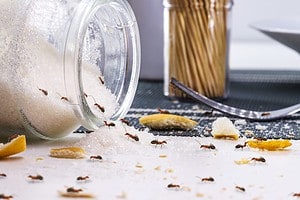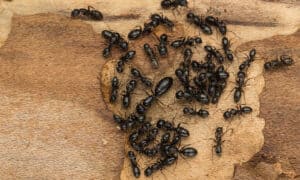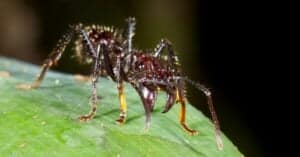Have you found yourself up to the neck with ants in your home? Don’t fret, it happens to the best of us! Dealing with ants can be an especially tricky feat, due to their small size, short period of reproduction, and power in numbers.
Despite this, there are still many ways in which you can get rid of ants in your house. People claim there are countless “tried and true” ant-removal methods, such as using baking soda, but do they hold any merit? Let’s talk about it!
Can You Use Baking Soda to Kill Ants?
Surprisingly, baking soda can be an incredibly effective ant-killer, although it does have some notable drawbacks. According to most sources, baking soda reacts with the acid found in ant digestive systems, causing a reaction that releases gas. In excess, this gas expands within the ants’ systems, causing them to die.
Due to this, it is an incredibly effective, budget-friendly, and non-toxic ant remover. With that said, there are a few things you should know about its use. Without further ado, let’s talk about some important things you should know before you use baking soda to kill ants!
5 Things to Know Before Using Baking Soda as an Ant Killer
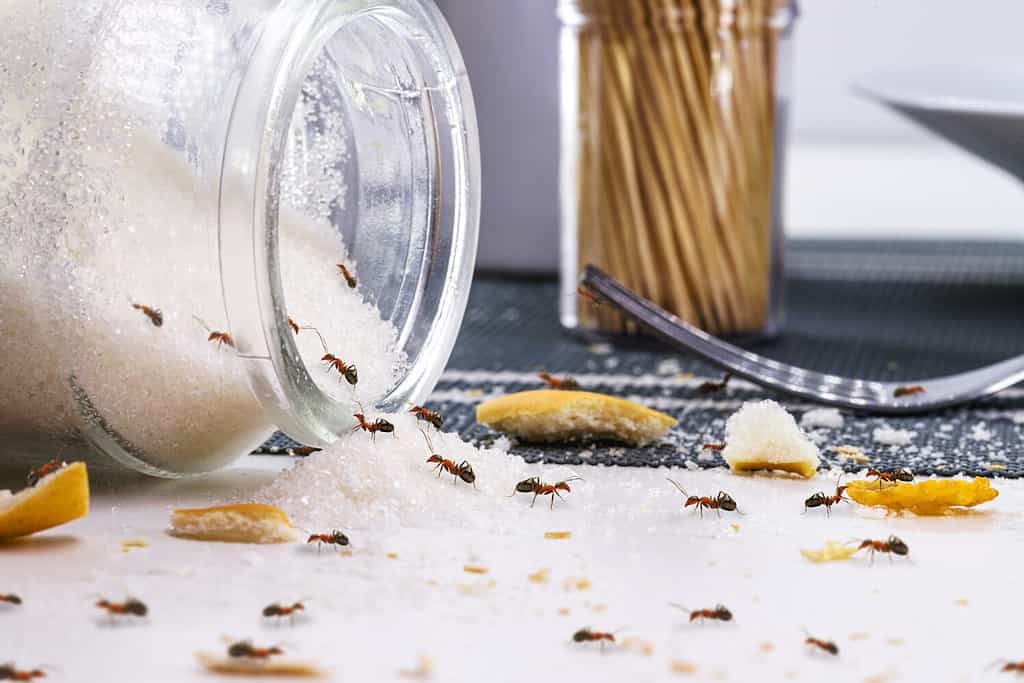
Baking soda can be a cheap and non-toxic method of removing ants, but you must use it in very specific ways for it to be effective!
©RHJPhtotos/Shutterstock.com
While it is effective, there are a few things that you need to do for baking soda to be an effective ant killer. Likewise, there are some other useful things you may want to know about using baking soda as an ant killer, which may or may not make it an appealing option for you.
Ants Have to Ingest the Baking Soda
The main issue with using baking soda lies in how it functions in ants. To work as an ant-killer, the baking soda has to enter the digestive system, meaning it has to be eaten. Many people simply sprinkle it on the floor in hopes that it will work, but ants have unfortunately adapted senses to avoid ingesting the compound.
Because of this, most DIY baking soda traps include other substances that are attractive to ants. Additionally, many additional things that are added to traps are used to cover up the scent/flavor of baking soda, all in an attempt to trick ants into eating it. For instance, sugar, molasses, and other sweet things are commonly used in homemade baking soda traps.
In any sense, you should be aware that baking soda will only work if you are willing to use it with something else. This also means that you will likely have to make traps at home, which can take some time!
Baking Soda Requires Broad Placement
Another important fact about using baking soda is that it requires broad placement around your home. For instance, if there are ants in your kitchen or through the inside of your home, you will need to place your baking soda mixture all around those areas. Many people find this cumbersome, as it can make the areas appear disorderly and messy.
Additionally, since it is a fine powder, baking soda can also be extremely easy to accidentally disturb, which can create more messes. It is for these reasons that baking soda works best for areas of low traffic and areas that don’t have to look too presentable.
You May Have to Frequently Re-Apply Baking Soda
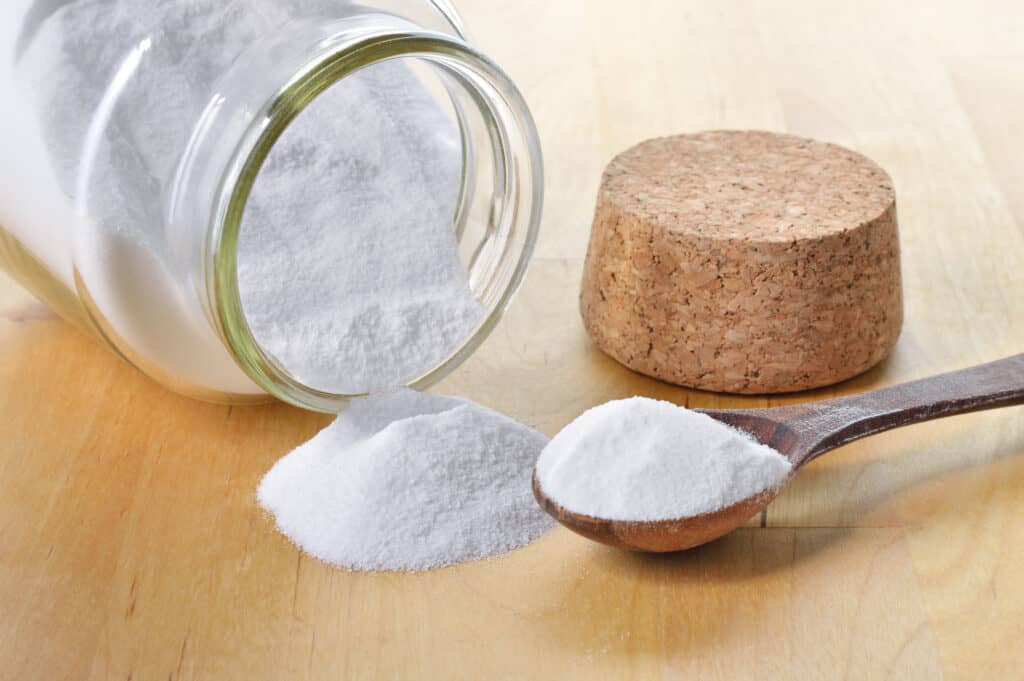
Many people find that reapplying baking soda becomes too tedious. If you don’t mind the process, however, it may be a great pest-control option for you.
©Geo-grafika/Shutterstock.com
Since ants will eat your bait over time, and because it will likely disperse with any disturbance, you will probably have to reapply your baking soda mixture regularly. This is especially true with big infestations where the problem lingers because you will have to deal with more ants in a single area. If you don’t have the time or energy to consistently reapply your baking soda, it is not the best method for you!
Baking Soda Is Super Safe
One positive thing about using baking soda is its safety. As you probably know, baking soda is an extremely common product that many people already have in their kitchens. Compared to other ant remedies, such as borax and concentrated oils, baking soda is non-toxic, and technically edible on its own.
For this reason, a lot of homeowners with kids or pets opt for baking soda because it gives them an added level of comfort in their pest control process.
Using Other Things With Baking Soda
As previously discussed, you need to use some form of attractant for baking soda to be effective against ants. Common attractants include sugar, molasses, oil, and borax. Some are non-toxic, but you should be wary of what recipe you are using, as some can become messy or expensive fast!
With that said, people have seen a lot of success by mixing multiple additives, such as sugar and oil, or sugar and borax.
How to Use Baking Soda to Kill Ants
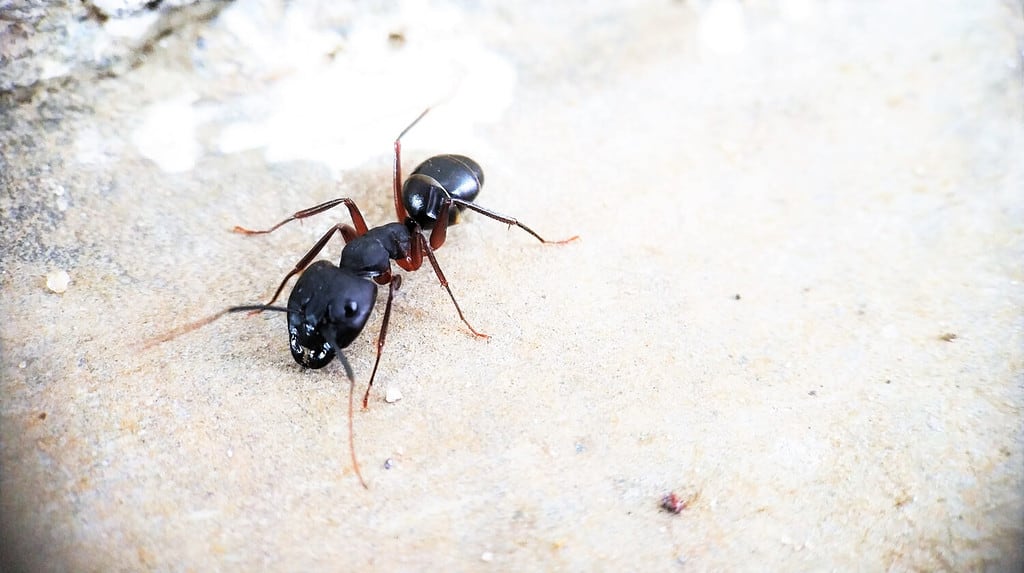
For your baking soda to be effective, you must add it to something that is attractive to ants.
©IamBijayaKumar/Shutterstock.com
Now that we have discussed how baking soda can kill ants, and some important things to know before using it, we can get into the real nitty-gritty of how you can use it for yourself! There are a few different methods people use to get rid of ants with baking soda, each with its pros and cons.
Making an Oil And Baking Soda Paste
One simple and common method is making a paste with baking soda and some type of oil. Oil doesn’t necessarily mean cooking oil. Many people find success with using oily foods such as baking grease, peanut butter, and lard. Adding equal amounts of oil and baking soda creates a workable paste that you can place around your home.
Some recipes go as far as to include multiple attractive ingredients, such as grease and cornmeal together. You should be cautious though, only add enough grease to turn the baking soda into a paste. Adding too much grease or oil can dilute the baking soda, rendering it ineffective against ants. Lastly, refrain from adding acidic things to your baking soda, as that can neutralize it, making it unable to react to the ants’ digestive systems.
Using a Simple Sugar and Baking Soda
Another common remedy is to mix equal parts of powdered sugar and baking soda. This will work similarly to the paste as described above, but it will be less messy in powder form. Once you have it thoroughly mixed, simply sprinkle the powder in areas of high ant-traffic. Make sure to reapply if it is disturbed or if your infestation persists!
If you find that the ants aren’t eating the powder straight from the ground, you can also turn it into a paste by adding water sparingly until the consistency is right.
Other Ways to Get Rid of Ants
If baking soda is not doing the trick for you in terms of ant-removal don’t worry, it happens! There are some other tried and true ways for repelling and getting rid of ants that you could try.
Diatomaceous Earth
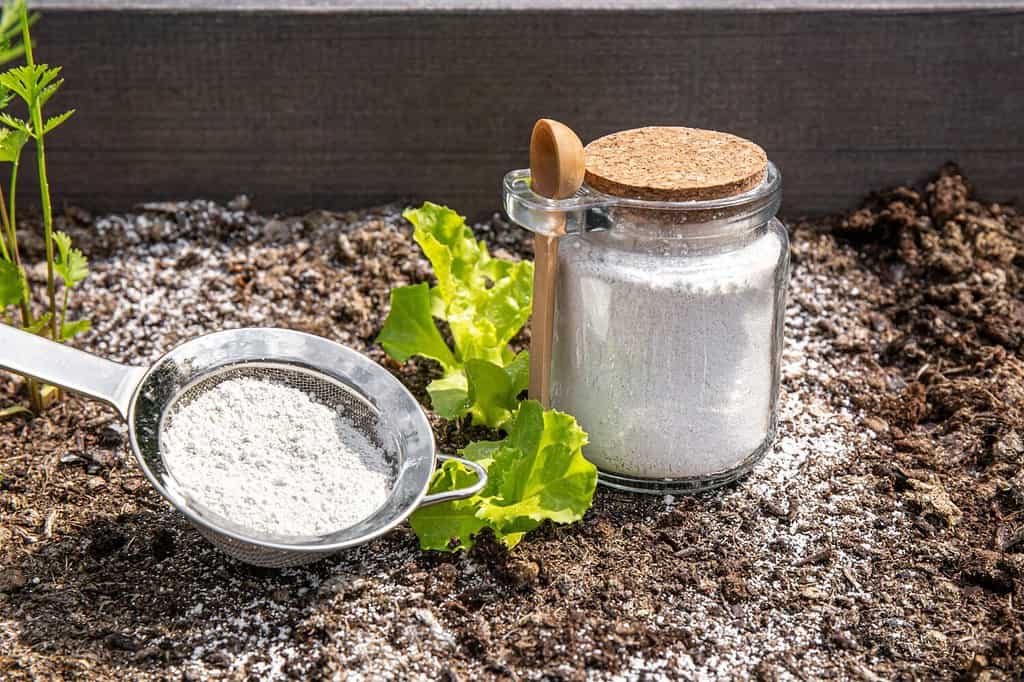
Diatomaceous earth is incredibly effective against many insects. It can be used both in the home and the garden, making it a great solution for many pest problems.
©FotoHelin/Shutterstock.com
Diatomaceous earth is a common remedy that works by wearing away the outer coating on insect exoskeletons. Eventually, the disruption interrupts the respiratory system of many bugs, as well as dehydrating them to the point of death.
Boric Acid and Sugar
One last solution is a simple mixture of boric acid and table sugar. Similar to baking soda, this mixture must be ingested to work, as it functions to interfere with insect digestive systems. It works on many insects, such as ants, roaches, and earwigs.
Many over-the-counter products include this mixture, all of which are relatively non-toxic and safe to use around your home. If you want to make some yourself, however, you can mix equal amounts of boric acid and sugar to make a combined powder. If you find that pastes work better against your ants, you can also hydrate it with a little water until it reaches the right consistency!
The photo featured at the top of this post is © A-Z-Animals.com/
Thank you for reading! Have some feedback for us? Contact the AZ Animals editorial team.




